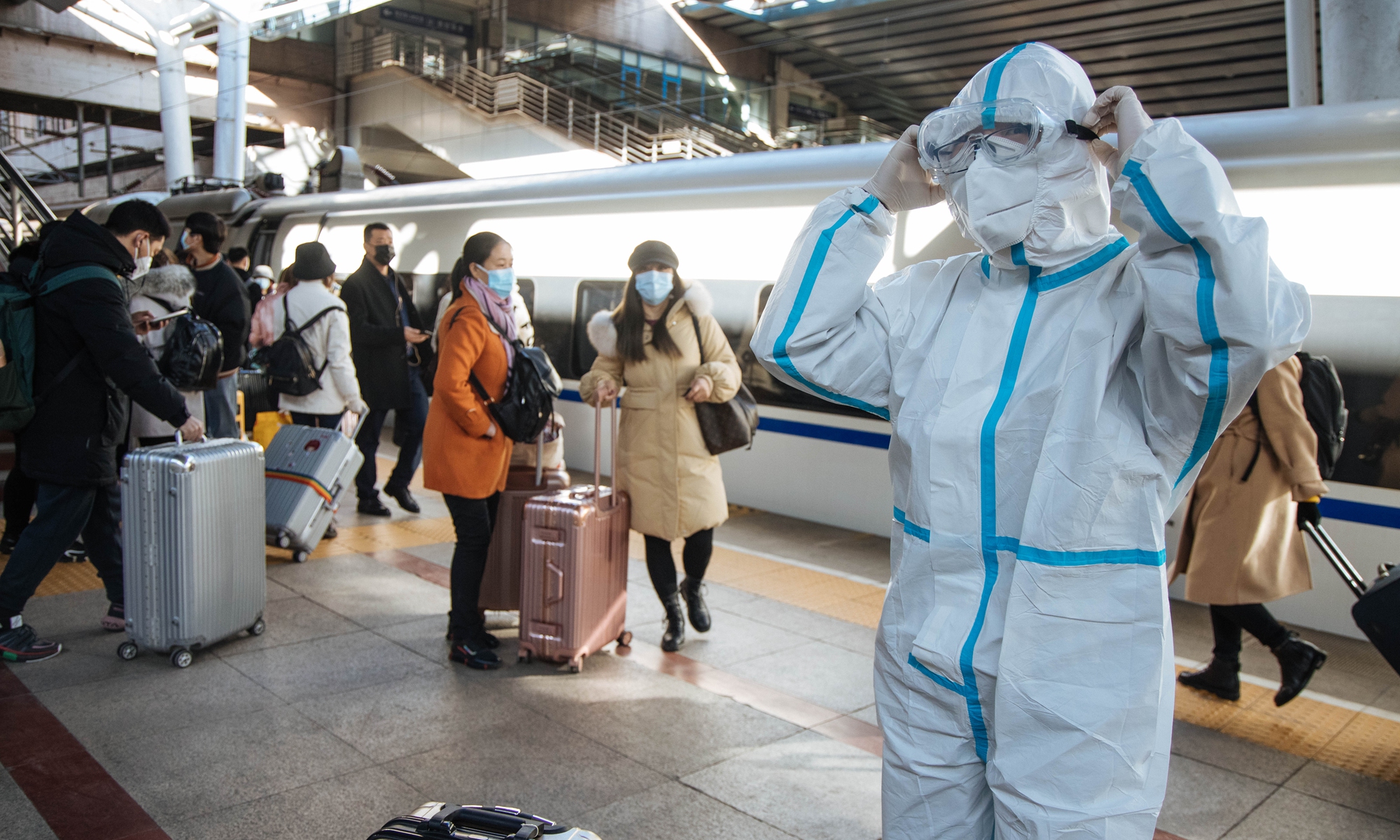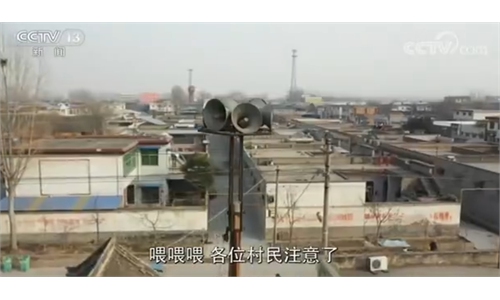Spring Festival travel shadowed by excessive virus prevention as some local govts add new restrictions on top of central policy

China's 40-day Spring Festival travel rush has kicked off on Thursday. Beijing West Railway Station expects the holiday travel rush to peak between February 16-18, and an estimated 70,000 passengers on average arriving at the station a day. Photo: Li Hao/GT
While China's central government has released guidelines for the management of flows of population amid the Spring Festival to reduce epidemic risks, local governments in a few places are adding further restrictions or adopting one-size-fits-all approaches in implementing the policy, sparking public criticism as being dogmatic with poor governance.
Observers said that although these are just isolated cases, they will still potentially provoke social conflicts and tarnish the image of the government, calling on grassroots officials to beef up governance capabilities.
The notice released by Longyao county, North China's Hebei Province, was dubbed as the "strictest." It said in a "frank" and "down to earth" tone, "just tell your family members not to come back" for the Spring Festival.
Hebei Province was hit hard by outbreaks since December last year, having reported 661 confirmed COVID-19 cases as of Wednesday.
Longyao's notice said that anyone from high- or medium-risk regions shall be quarantined in designated places for 21 days and if they are from low-risk regions, they must have nucleic acid tests, introduction letters and face 14 days of home quarantine. A community in Longyao is labeled as a medium-risk region for the coronavirus.
A previous notice by the National Health Commission said a negative nucleic acid testing result was mandatory for key groups such as those working in the cold-chain industry or those who make cross-provincial trips. For other people from low-risk regions, a green health code would be enough.
The requirement for village returnees is a negative nucleic acid test, plus 14 days of health monitoring. During this period, they should not gather or walk around, and they should take nucleic acid tests every seven days.
But Northwest China's Gansu Province asked for a negative nucleic acid test result for all from low-risk regions, regardless of whether they are going to urban areas or villages, on the basis of demonstrating their green health codes.
Imposing further restrictions when implementing central policy represents doctrinairism and supremacism, Yu Shaoxiang, chief research fellow with the Chinese Academy of Social Sciences, told the Global Times on Thursday. He explained that local officials deeply believe that supremacism could make sure they are safe from any mistakes or incidents.
It obviously would be much easier to ask all returnees to hand over negative nucleic acid tests, regardless of where they are from, or simply ban them from returning, than to try to impose different regulations for different risk levels, Yu said.
Twisting central policies is not the norm, Yu stressed. Most provinces and cities across China are able to implement the policy properly.
A Chinese official working at a county-level government reached by the Global Times admitted the existence of supremacism among some grassroots governments.
"In order to limit the risks of any potential outbreak, some grassroots governments would adopt a one-size-fits-all approach in implementing the policy because they lack the capability to grasp the meaning of it, resulting in twisting of central policies," he told the Global Times on condition of anonymity.
The complexity of rural governance, due to limited staffing and medical resources, is part of the reason why they would not like to take any risk of being hit by an epidemic, the anonymous official said.
China's experience in fighting the epidemic in the past year shows that strict, accurate and uncompromising implementation of the central government's epidemic prevention policies can win the battle against the coronavirus. Adding extra restrictions on top of central policies fully exposes the rigid and backward mindset of local cadres in governance capacity, a commentary by the Xinhua News Agency said.
Chinese officials stressed at a Wednesday press conference that staying put for the upcoming Spring Festival is not mandatory, and local governments should not adopt a one-size-fits-all approach to stopping residents from returning. They should provide convenience for those who need to return to their hometown.
A notice released by the General Office of the Communist Party of China Central Committee and the State Council has classified population flows in different risk regions amid the Spring Festival. It requires that people from any high-risk regions to stay put; people from medium-risk regions shall also stay put in principle, if they don't need to travel, and they must get approval from local authorities.
People from low risk-regions are encouraged to stay put and reduce unnecessary trips.


